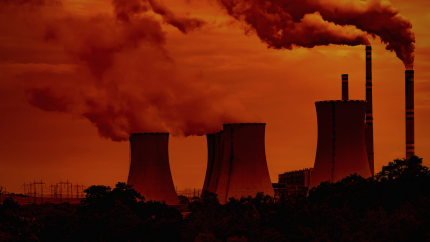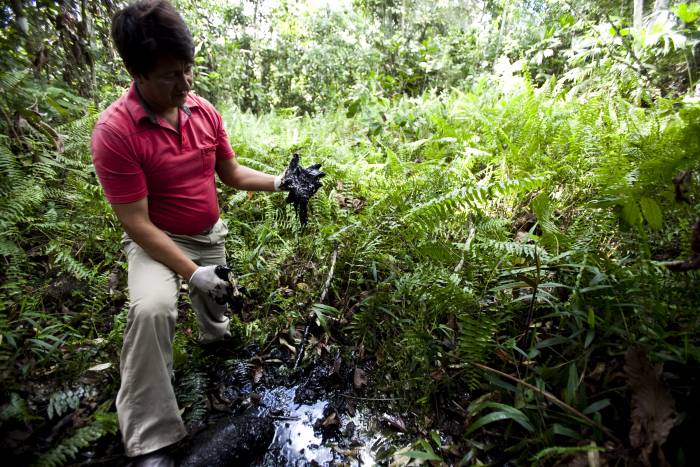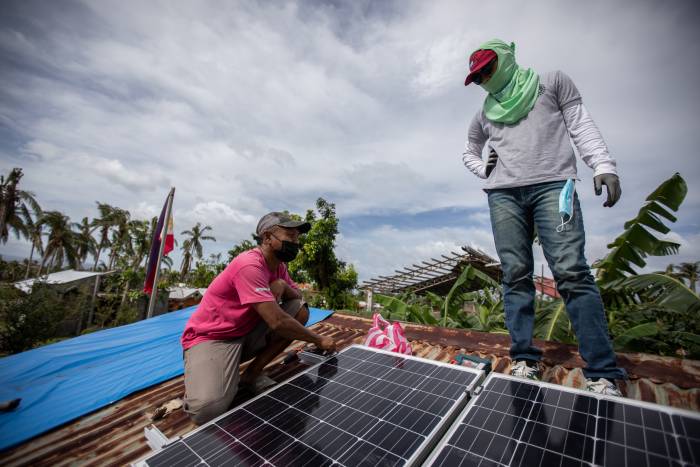
Awareness about the climate crisis has never been greater, and with that an accompanied sense of dread surrounding its implications for people and the planet. Despite this, we are making progress: We have a clear path forward to get out of this mess. For the first time ever, at COP28, “transition away from fossil fuels” was included in the final outcome of the 2023 UN Climate Talks, and more than 100 countries supported tripling renewable energy and doubling energy efficiency by 2030.
But we know that the fossil fuel industry and those with vested political and economic interests are trying really hard to oppose this path forward and find a way to continue with business as usual. As a matter of fact, money and influence is being used to slow down progress by introducing dangerous distractions – technologies still unproven, expensive and complex to construct for most, especially in countries in parts of Africa, South America and Asia.
Here are a few terms we heard during COP28 that it is crucial we debunk in order to have a real shot at keeping temperatures at 1.5C, in line with the Paris Agreement.
Carbon Capture and Storage (CCS)
Carbon Capture and Storage (CCS) is the fossil fuel industry’s plan B to keep profiting at the expense of the health of the planet.
It is claimed to be a technology that reduces the climate impact of burning fossil fuels by capturing the carbon dioxide pollution before it reaches the atmosphere and then burying it underground. But what the fossil fuel industry doesn’t say is that the capacity for this technology, worldwide, is equivalent to less than 1% of what is emitted from fossil fuels per year. Studies have also shown that depending on CCS to cut emissions will cost governments $30 trillion more than a route based mainly on renewable energy, such as wind and solar.
Exxon, for instance, features their carbon capture efforts on their website and calls themselves “the global leader in carbon capture and storage”. But they’re also one of the top 10 companies in the world responsible for global emissions, which far surpass the total amount of carbon captured and what they invest in “low carbon” projects – less than 5% of their multi billion dollar profits.
And the problems don’t end there. 81% of carbon captured to date has been used to extract more oil from existing wells by pumping the captured carbon into the ground to force out more oil. Currently, some CCS is also done through tree plantations – the burden of which typically falls on the Global South, putting pressure on food systems and land conflicts even though these countries have done little to cause the climate crisis.
Anything that allows burning to continue is fundamentally not on the scale of change we need and replicates a broken and extractive system. Dangerous distractions like CCS risk extending the life of the failing fossil fuel industry, and present no realistic solution for a full, quick, fair and just energy transition for all.
Emissions abatement, Carbon Neutrality and Carbon Credits
These terms allude not to cutting, but reducing emissions. They also allude to still unproven, costly and sometimes even harmful methods like reforestation. Instead of actually lowering emissions, companies are able to hit their “net-zero targets” by claiming that the carbon they have emitted has been “offset” by something else, like planting trees.
Not only does this method fail to tackle the negative social and environmental impacts of fossil fuel extraction and burning, these projects can also notoriously displace communities, aggravate land conflicts, disrupt food systems and harm biodiversity.

Open toxic pool in the the Ecuadorean Amazon rainforest near Lago Agrio. Photo: Caroline Bennett, RAN
The science is clear: reducing emissions is not enough. Even if these methods and technologies were cheap and scalable, and didn’t risk predatory and colonialist practices, fossil fuel emissions have no place in urgently scaling up the renewable energy transition. Unless we completely phase out of fossil fuels, we will not reach the target we need to keep the planet safe.
Nuclear energy
Large-scale energy technologies like nuclear power plants require billions of dollars upfront, take an average of 8 years to build, and waste management is extremely tricky.
In Japan, we are still experiencing the impacts of the Fukushima Daiichi nuclear disaster that happened in 2011. It led to the evacuation and displacement of over 150,000 people, exposure of many to radioactivity, contamination of land and water, astronomical clean-up and radioactive waste costs, impacts on agricultural and fishery livelihoods – the list goes on. With nuclear, when things go wrong, they go very, very wrong.
Also, nuclear uses centralized technology, governance, and decision-making processes, concentrating the distribution of power in the hands of the few.
As we build the world we want, transferring ownership and control of renewable energy infrastructure from private monopolies increasingly to communities and the public sector or small and medium enterprises, will allow for electricity to be produced close to where it would be consumed, and communities and workers would directly benefit from improved energy access and governance.
What can get us where we need to be in time?
We know exactly what we can and need to do.
Even the fossil fuel industry knows that we need to fully transition from fossil fuels and into decentralized renewable energy solutions like wind and solar, which have proven to be safe, already cheaper than any fossil fuel plant and scalable.
And we must not replace one broken system with another.
For those that are often at the forefront of the climate crisis, in order to power up renewables, rich countries need to invest in countries in Africa, Latin America and parts of Asia seven times the current levels and their debt needs to be canceled. When we scale up renewable energy solutions, the demand for raw materials and minerals will inevitably rise. Not only do we need democratic and transparent regulation for them but as we move forward, we must also explore ways to reduce the need for these materials and scale down less-necessary forms of production.
In sum; We need to advocate for policies that incentivize and support the widespread adoption of decentralized and community-led wind and solar technologies. Also, we need massive investment in research and development of renewable energy, energy storage and energy efficiency measures. These solutions can contribute to a diversified and resilient energy landscape and are crucial steps toward achieving a clean and just energy future.

RE-serve Corps volunteer assists the installation of solar panels on top of San Agustin Barangay Hall.
The post Don’t be fooled: Debunking some of the most tempting greenwashing terms appeared first on 350.


0 Commentaires